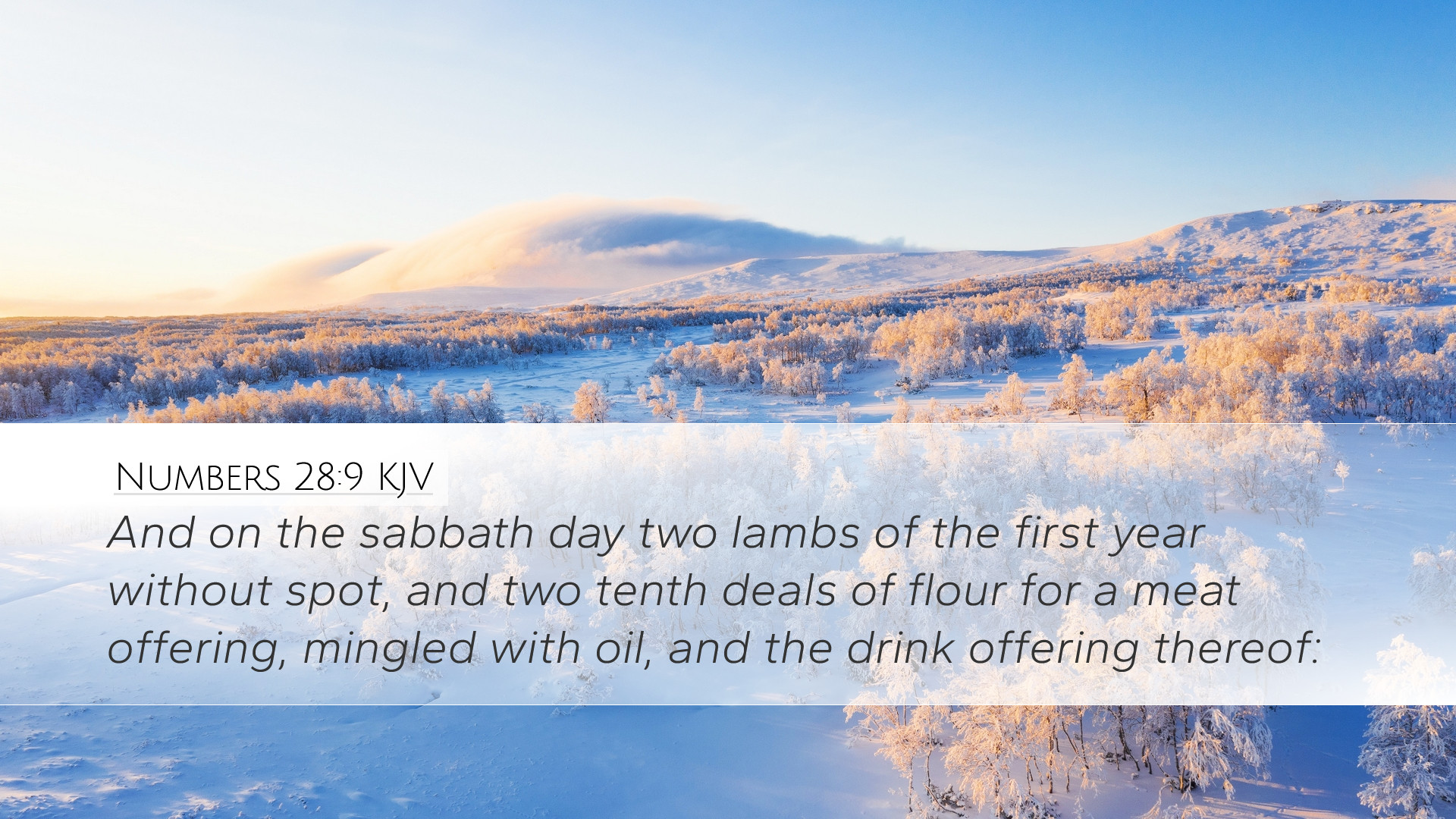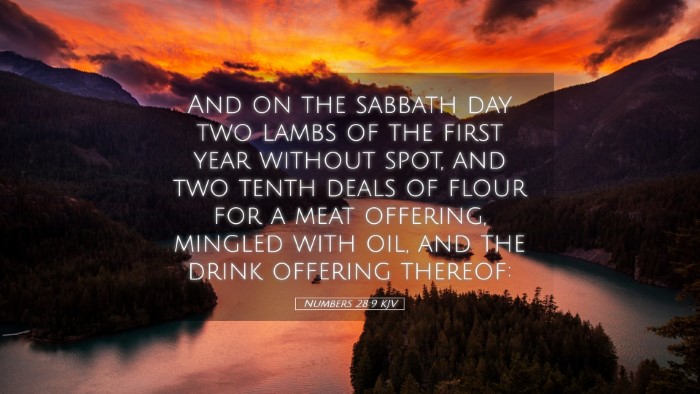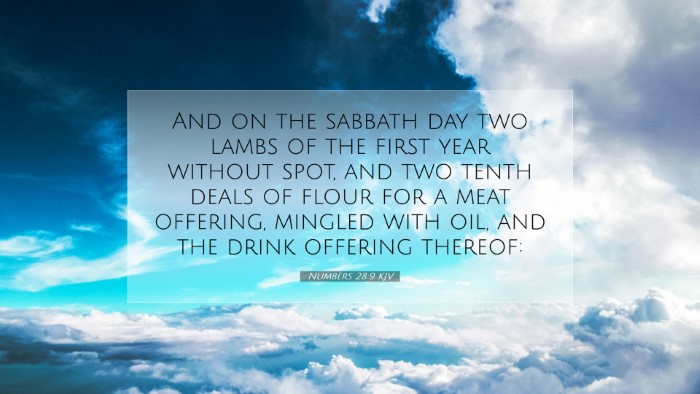Commentary on Numbers 28:9
Numbers 28:9 states: "And on the sabbath day two lambs of the first year without spot, and two tenths deals of flour for a meat offering, mingled with oil, and the drink offering thereof:
Introduction
The sabbath is a pivotal aspect of Israelite worship and weekly rhythm. The prescribed offerings for this day underscore its significance as a symbol of rest and devotion to God. Various public domain commentators provide insights into the historical, theological, and practical implications of this verse.
Matthew Henry's Insights
Matthew Henry emphasizes that the sabbath is a day set apart for rest and worship, being a blessing given by God. He comments on the specific offerings mentioned:
- Two Lambs: The lambs represent total dedication and innocence, symbolizing Christ as the Lamb of God who takes away the sins of the world.
- Flour and Oil: The flour signifies sustenance and the oil represents the Holy Spirit, pointing to the spiritual nourishment provided through worship.
- Drink Offering: Henry draws attention to the drink offering as an extension of the other offerings which signifies the joyful outpouring of thanksgiving to God.
He notes that these offerings were to be presented with reverence and were significant in their role of keeping the sabbath holy, leading worshippers into an encounter with God.
Albert Barnes' Perspective
Albert Barnes offers a historical and practical understanding of this verse. He elucidates the necessity of the offerings in maintaining a relationship with God:
- Cultural Context: Barnes highlights that the sabbath offerings were not merely rituals; they were acts of obedience and worship reflecting Israel's covenant relationship with Yahweh.
- Restoration of the Soul: He notes that the sabbath is a means by which the people can find restoration and spiritual renewal, allowing them to reset their focus on God amidst daily toil.
- Symbol of Christ: Barnes also sees the offerings as foreshadowing the ultimate sacrifice of Christ, where He becomes our rest and fulfills the law's demands.
His commentary also draws attention to the detailed regulations around the offerings that illustrate God's desire for order and the importance of sacrifices being done appropriately.
Adam Clarke's Examination
Adam Clarke provides additional scholarly depth by analyzing the text with linguistic and contextual scrutiny:
- Linguistic Analysis: Clarke examines the Hebrew terms used in the verse, emphasizing their significance. He notes that “without spot” implies purity and represents the standard of sacrifice acceptable before God.
- Offerings as a Covenant Sign: He discusses how the offerings are a sign of ongoing commitment to the covenant relationship between God and His people.
- Holy Convocations: Clarke identifies the sabbath as a call to congregational worship, aligning the offerings with community rather than individual expressions of faith.
He concludes by emphasizing that these rituals are still meaningful for contemporary believers, as they point to a deeper spiritual truth about sacrifice, commitment, and divine connection.
Theological Implications
The collective insights from the commentators lead to profound theological implications:
- Christ as Fulfillment: The offerings prescribed in Numbers serve as shadows pointing to the reality fulfilled in Christ—our ultimate Sabbath rest and sacrificial Lamb.
- Call to Worship: The ritual acts demand a heart of worship, reminding believers today of the importance of dedicating time to focus on God, especially amidst a culture of busyness.
- Community Worship: The sabbath offerings reflect the necessity of gathering as a community to offer praises to God, reinforcing the need for communal identity in Christ.
Conclusion
In essence, Numbers 28:9 encapsulates more than just ritual; it embodies a way of life for both ancient Israel and modern-day believers. Through the lens of commentators like Matthew Henry, Albert Barnes, and Adam Clarke, one can appreciate the layered meanings within the text and how they continue to resonate with our faith journey today. The sabbath and its associated offerings forge a deep spiritual connection that invites worship, dedication, and rest in God.


